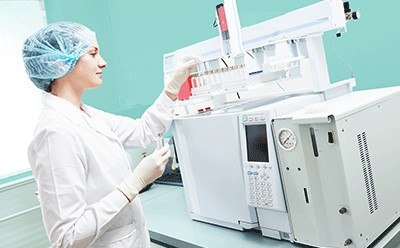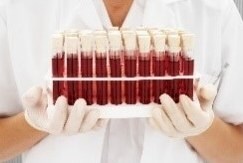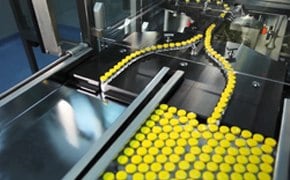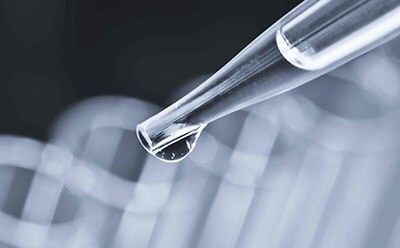Milli-Q® Water
for Your Science
Focus on creating breakthroughs

Water is arguably the most essential reagent in any laboratory. Its purity—and the consistency of that purity—are crucial for obtaining accurate and reproducible experimental results. This is particularly important for highly sensitive analytical techniques such as LC-MS and ICP-MS, as well as genomic techniques like next-generation sequencing (NGS) and CRISPR.
Explore our selection of Technical Articles, Application Notes and Webinars in which Lab Water experts and fellow scientists discuss:
- Water Quality Requirements for Specific Analyses: Understand the specific water quality needs for different types of analyses.
- Avoiding Water Contaminants: Learn how to identify and prevent contaminants that can impact your results.
- Adapting Water Purity to Your Needs: Discover how to tailor water purity to suit your specific laboratory requirements.
Feel free to ask for assistance in selecting the best water purification solution for your laboratory and its applications, by filling the contact form.

Water for Analytical Chemistry
Analytical testing involves various techniques used to identify the chemical makeup or characteristics of a sample. These techniques, such as LC-MS, ICP-MS and ion chromatography (IC), require reagent water to be free of the analytes being measured.
- Obtaining Ultrapure Water for Sensitive PFAS Analysis by LC-MS
- Ultrapure Water for Sensitive LC-MS Analysis of Pesticides
- Ultrapure Water for Metal Analysis in Regulated Food & Beverage Labs
- Ultrapure Water for Determination of Toxic Elements in Environmental Analyses
- LC-MS Analysis of Hormones in Tap Water
- Drinking Water Testing by Ion Chromatography using Ultrapure Water
- Ultrapure Water for Perchlorate Analysis of Environmental Samples
- Water for pH Measurement & Buffer Preparation

Water for Environmental Testing
Sensitive analytical techniques are used to detect trace contaminants in our environment and drinking water. Read here about ensuring optimal water quality that is critical for results reliability and accuracy in environmental testing.
- Obtaining Ultrapure Water for Sensitive PFAS Analysis by LC-MS
- Ultrapure Water for Sensitive LC-MS Analysis of Pesticides
- Water for BOD & COD Oxygen Demand Testing
- LC-MS Analysis of Hormones in Tap Water
- Drinking Water Testing by Ion Chromatography using Ultrapure Water
- Ultrapure Water for Determination of Toxic Elements in Environmental Analyses
- Ultrapure Water for Perchlorate Analysis of Environmental Samples

Water for Cell & Molecular Biology
Using the appropriate water quality for each step of your DNA or RNA workflow eliminates the risk of water contaminants (e.g. nucleases) interfering with nucleic acids and the many enzymatic reactions performed in these processes. It also helps by preventing instrument contamination.
- Nuclease-Free Water at Your Fingertips
- Water for Next-Generation Sequencing
- Ultrapure Water for BPA-free Culture Media in Embryology Research
- Water for Nuclease-sensitive Mol Biol Studies
- Water for PCR Techniques
- Water for Nucleic Acid Gel Electrophoresis
- Water for DNA Sequencing
- Water for Protein Electrophoresis & W. Blotting
- Water for pH Measurement & Buffer Preparation
- Water for Microbiological Media Preparation
- Water for Mammalian Cell Culture

Water for Clinical Diagnostics
Water for clinical labs must consistently be of the correct quality to assure accurate and reliable patient diagnostics. Read these articles to learn how water contamination can interfere with clinical assays, potentially causing errors, unstable results, delays and downtime.

Water for Industrial Testing and Manufacturing
Our lab water expertise also covers industry segments, including the pharmaceutical industry, food and beverages testing, as well as electronics manufacturing.
- EN ISO 11133 and Water for the Preparation and Performance Testing of Microbiological Culture Media
- Water for Microbiological Media Preparation
- Ultrapure Water for Metal Analysis in Regulated Food & Beverage Labs
- Ultrapure Water for Food and Beverage Analysis by Ion Chromatography
- Ultrapure Water for Determination of Elemental Impurities in Pharmaceuticals
- Ultrapure Water for Determination of Elemental Impurities per USP
- Optimal Water Purification for Silica-sensitive Applications
- Water for Kjeldahl Analysis
- Ultrapure Water for Sensitive LC-MS Analysis of Pesticides

What Water Quality Does Your Lab Require?
Norms define different laboratory water grades for both technical and economic reasons. These norms help ensure that the correct water type is used for a specific application while limiting laboratory operating costs. For example, Type 1 ultrapure water is more expensive to produce than Type 2 pure or Type 3 reverse osmosis (RO) water.
- Type 1 ultrapure water is required for critical laboratory applications such as HPLC mobile phase preparation, blanks and sample dilution in HPLC, GC, AAS, ICP-MS and other advanced analytical techniques; preparation of culture media for mammalian cell culture; production of buffers and reagents for molecular biology applications (DNA sequencing, PCR); and preparation of solutions for electrophoresis and blotting.
- Type 2 pure water is used in general laboratory applications such as buffers, pH solutions, histology reagents and staining solutions, microbiological culture media preparation; as feed to Type 1 water systems, clinical analyzers, stainless steel autoclaves, lab washers, hydrogen generators or weathering test chambers.
- Type 3 RO water is the lowest laboratory water grade, recommended for glassware rinsing, heating baths and filling autoclaves, or feeding Type 1 ultrapure lab water systems.
How to Choose Best Adapted Water Quality for Food & Beverage Tests
What is the central reagent in the laboratory? Water, of course. Let us help your testing by providing tips for water quality to achieve reliable results.
Guidance to ISO 11133 Compliance: Water Sourcing for Microbiology Culture Media
Learn about the ISO 11133:2014 standard and the impact of water contaminants on microbiology culture media.
The Forgotten Variable: Laboratory Water Purity and its Impact on your Experiments
Learn about the potential impact of water purity on your experiments and how water is purified for use in the lab. You will also receive practical advice about how to obtain the best water quality.
Good Practices for Reliable LC-MS and ICP-MS Analysis
Learn about the contaminants potentially present in water, and their impact on LC–MS analyses. Also learn how to obtain the best water quality for your experiments, and how this water should be optimally handled.
The Secret to ELISA-based Diagnostic Test Success: Know Your Water
In this webinar, we cover the importance of water quality with a focus on ELISA-based diagnostic test applications.
Earth Sciences Lab at Imperial College London
The flexibility and ease-of-use of the Milli-Q® EQ 7000 ultrapure water system supports the efficiency of this Science and Engineering Lab at Imperial College London.
Stem Cell Research in Singapore
The simplicity, design and one-touch ease of use of t he Milli-Q® EQ 7000 ultrapure water system sat isfies the needs of t his stem cell laboratory in Singapore.
Institute of Earth Physics of Paris
See how the Institute of Earth Physics of Paris uses Milli-Q® systems to analyze the rock samples by ion chromatography or ICP-MS — with the help of pure and ultrapure water.
To continue reading please sign in or create an account.
Don't Have An Account?